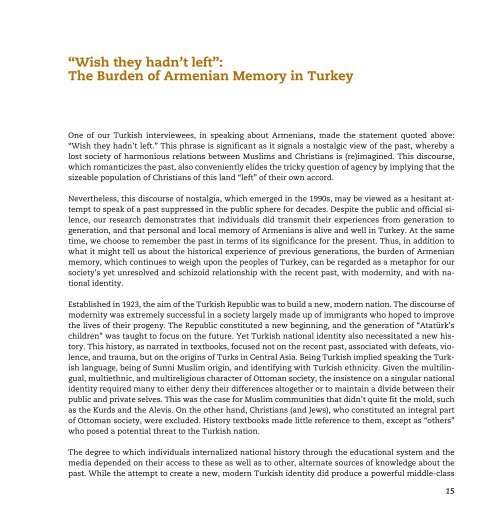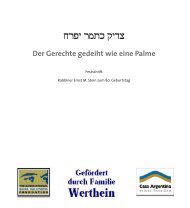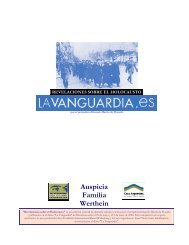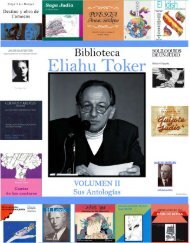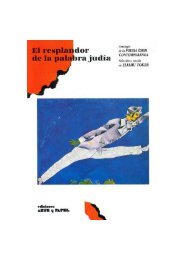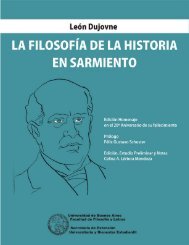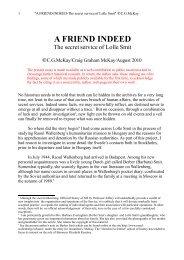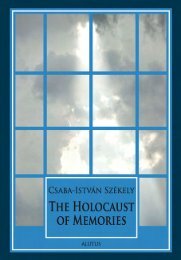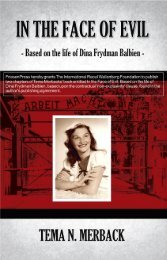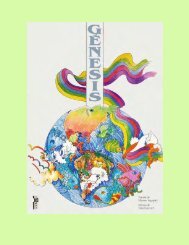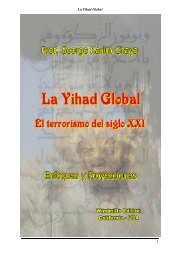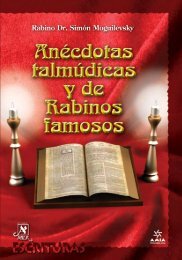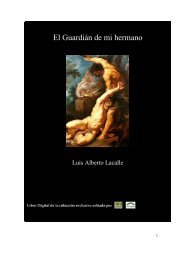Speaking to One Another - The International Raoul Wallenberg ...
Speaking to One Another - The International Raoul Wallenberg ...
Speaking to One Another - The International Raoul Wallenberg ...
- No tags were found...
Create successful ePaper yourself
Turn your PDF publications into a flip-book with our unique Google optimized e-Paper software.
“Wish they hadn’t left”:<strong>The</strong> Burden of Armenian Memory in Turkey<strong>One</strong> of our Turkish interviewees, in speaking about Armenians, made the statement quoted above:“Wish they hadn’t left.” This phrase is significant as it signals a nostalgic view of the past, whereby alost society of harmonious relations between Muslims and Christians is (re)imagined. This discourse,which romanticizes the past, also conveniently elides the tricky question of agency by implying that thesizeable population of Christians of this land “left” of their own accord.Nevertheless, this discourse of nostalgia, which emerged in the 1990s, may be viewed as a hesitant attempt<strong>to</strong> speak of a past suppressed in the public sphere for decades. Despite the public and official silence,our research demonstrates that individuals did transmit their experiences from generation <strong>to</strong>generation, and that personal and local memory of Armenians is alive and well in Turkey. At the sametime, we choose <strong>to</strong> remember the past in terms of its significance for the present. Thus, in addition <strong>to</strong>what it might tell us about the his<strong>to</strong>rical experience of previous generations, the burden of Armenianmemory, which continues <strong>to</strong> weigh upon the peoples of Turkey, can be regarded as a metaphor for oursociety’s yet unresolved and schizoid relationship with the recent past, with modernity, and with nationalidentity.Established in 1923, the aim of the Turkish Republic was <strong>to</strong> build a new, modern nation. <strong>The</strong> discourse ofmodernity was extremely successful in a society largely made up of immigrants who hoped <strong>to</strong> improvethe lives of their progeny. <strong>The</strong> Republic constituted a new beginning, and the generation of “Atatürk’schildren” was taught <strong>to</strong> focus on the future. Yet Turkish national identity also necessitated a new his<strong>to</strong>ry.This his<strong>to</strong>ry, as narrated in textbooks, focused not on the recent past, associated with defeats, violence,and trauma, but on the origins of Turks in Central Asia. Being Turkish implied speaking the Turkishlanguage, being of Sunni Muslim origin, and identifying with Turkish ethnicity. Given the multilingual,multiethnic, and multireligious character of Ot<strong>to</strong>man society, the insistence on a singular nationalidentity required many <strong>to</strong> either deny their differences al<strong>to</strong>gether or <strong>to</strong> maintain a divide between theirpublic and private selves. This was the case for Muslim communities that didn’t quite fit the mold, suchas the Kurds and the Alevis. On the other hand, Christians (and Jews), who constituted an integral par<strong>to</strong>f Ot<strong>to</strong>man society, were excluded. His<strong>to</strong>ry textbooks made little reference <strong>to</strong> them, except as “others”who posed a potential threat <strong>to</strong> the Turkish nation.<strong>The</strong> degree <strong>to</strong> which individuals internalized national his<strong>to</strong>ry through the educational system and themedia depended on their access <strong>to</strong> these as well as <strong>to</strong> other, alternate sources of knowledge about thepast. While the attempt <strong>to</strong> create a new, modern Turkish identity did produce a powerful middle-class15


